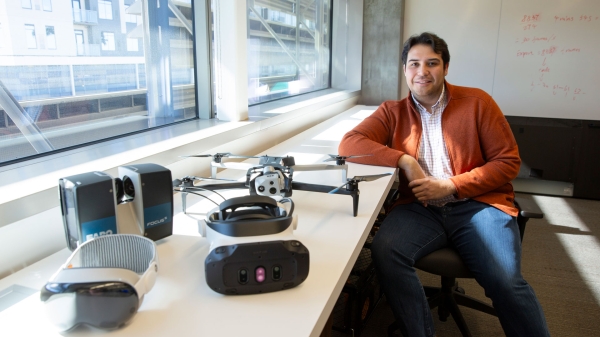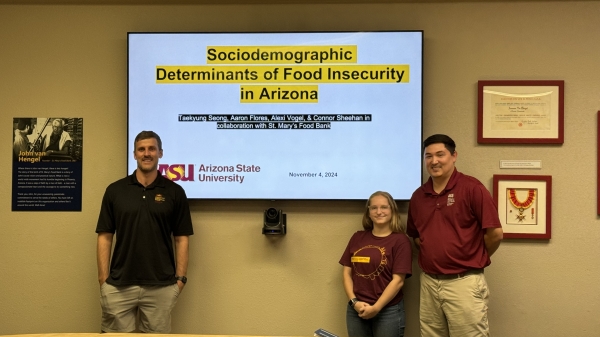ASU technology transfer experts to mentor counterparts in Idaho

Photo courtesy Pixabay
Lessons learned from Arizona State University’s expertise and success in technology transfer and translational research will be shared with researchers in Idaho starting in February.
The National Science Foundation (NSF) hopes ASU’s collaboration with Boise State University (BSU) will enable BSU to achieve similar success in developing products and services to advance the economy and society.
A $6 million NSF grant to Boise State is part of the foundation’s first-ever Accelerating Research Translation (ART) investment. Researchers at ASU’s Global Center for Technology Transfer (GCTT) will use about 10% of the grant to mentor their BSU counterparts for four years.
With their joint project, called Translational Research Ambassadors Network for Strengthening Institutional Capacity and Fostering a Responsive and Open Mindset (TRANSFORM), ASU and BSU form one of 18 mentorships funded with ART grants totaling more than $100 million.
Each mentorship’s purpose is “to identify and build upon academic research with the potential for technology transfer and societal and economic impacts, to ensure availability of staff with technology transfer expertise and to support the education and training of entrepreneurial faculty and students,” according to an NSF statement.
GCTT Co-Executive Director and ASU School of Public Affairs Foundation Professor of Public Policy and Management Donald Siegel is principal investigator of ASU’s part of the grant. He said he and his GCTT colleagues are excited to begin collaborating with the BSU researchers and key stakeholders in the Boise community. Siegel said Boise and Phoenix have much in common: Both are state capitals, and both are experiencing explosive population and high-tech sector growth, such as microchip production.
“The goal of our project is to accelerate research translation and technology transfer/academic entrepreneurship at this rising institution and the surrounding region,” Siegel said.
Siegel said GCTT will begin by organizing a technology transfer summit at BSU, where key stakeholders will be invited to help lay the groundwork for the project’s activities.
“GCTT will also host site visits for selected Boise State faculty, administrators and students, so these TRANSFORM ‘ART Ambassadors’ can learn from several Knowledge Enterprise units and SkySong Innovations,” Siegel said.
GCTT Co-Director Professor David Waldman, a Dean’s Council Distinguished Scholar at ASU’s W. P. Carey School of Business, pointed to three important ways the center is involved in the grant.
“First, our mentorship of Boise State’s efforts is very much in line with the mission of the GCTT, which includes applying our expertise and networks to help other entities (e.g., universities, private firms, etc.) in their technology transfer or translational research efforts,” Waldman said.
“Second, in mentoring of Boise State, we will apply a particular strength of the GCTT, which is its interdisciplinary nature. That is, we will employ a number of perspectives to the enhancement of translational research, including economic development, behavioral/organizational and public policy ways of viewing problems and their solutions.
“Third, as a mentor university in the ART program, we are among a number of other highly esteemed institutions, such as the University of Michigan, the University of Chicago, Columbia, Princeton and MIT.”
GCTT faculty members Watts Professor of Public Policy and Management Maryann Feldman and Associate Professor Maribel Guerrero, both in the School of Public Affairs, are also involved in the project.
NSF Director Sethuraman Panchanathan said the foundation “endeavors to empower academic institutions to build the pathways and structures need to speed and scale their research into products and services that benefit the nation."
“The Accelerating Research Translation program in NSF’s new Technology, Innovation and Partnerships (TIP) Directorate identifies and champions institutions positioned to expand their research translation capacity by investing in activities essential to move results to practice," Panchanathan said.
More Science and technology

Teaching construction realities with virtual environments
Visiting a construction site is a valuable learning opportunity for students who want to one day work in the industry. Experiencing the sights, sounds and other sensory elements of an active…
ASU, Mexico partner to build next generation of chipmakers, drive semiconductor innovation
Thousands of college students in Mexico will soon have the opportunity to enroll in Arizona State University’s new, free online course to learn the fundamentals of microelectronics and…

ASU, St. Mary’s Food Bank partner to tackle food insecurity in Arizona
Arizona State University and St. Mary’s Food Bank (SMFB) have joined forces to create an interactive data dashboard that tracks and maps food insecurity rates across Arizona. This innovative tool…